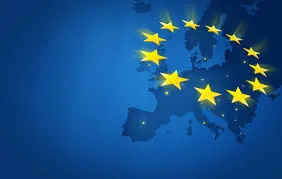‘EU should bring Unitary Patent system under its control’
May 8, 2018
The Unitary Patent (UP) package becoming a reality would be a great step forward for Europe. Intellectual property, and patents in particular, is a key ingredient in innovation systems. However, more political efforts will be needed to build a truly European system which supports innovation dynamics. And the European Patent Office (EPO) should probably be less independent from the European Union than it currently is. Bruno van Pottelsberghe, Professor at the Solvay Brussels School of Economics and Management (ULB) and a former chief economist of the EPO, explains in an interview with Kluwer IP Law.

National patent offices (NPOs) will benefit as well, although they have often been hesitant about that. ‘It is a bit surrealistic that the main advisors in the creation of the UP system were the head of national patent offices, which feared to lose both power and financial resources due to the new system. Indeed, with the current system, yearly renewal fees are paid to national patent offices in order to maintain in force a European patent granted by the EPO. These renewal fees income are then split 50/50 between national patent offices and the EPO. With the UP package, renewal fees will be paid to the EPO. This income will then be split 50/50 between the EPO and the NPOs. How much each NPO will receive is a legitimate question, but should not be an influencing factor.’
NPO’s concerns are partly groundless, according to van Pottelsberghe, at least if a sufficient number of countries join the UP package in order to make it attractive. ‘If traditional national and European patents remain popular, and the UP system has a small to medium use only, some national offices may indeed lose some renewal fees income. In case of a strong use of the UP system, however, our research (jointly with Jérôme Danguy, 2011) revealed that patent offices of every UP member state will benefit financially. Only Germany, which currently benefits heavily from the European system, as it enjoys the status of being the largest economy (ie, where patents are renewed for the longest duration) and has benefitted most from the traditional system, could lose some of its resources.’
The more members in the Unitary Patent package the better, according to van Pottelsberghe, who thinks it is unfortunate and a weakness of the UP system that several European countries will not join, particularly important economies such as Spain or Poland. The Czech Republic, Hungary and Greece have no plans to ratify any time soon either, it seems. ‘Some of these states rely on language arguments, the small size of their innovation sector (preferring to facilitate an imitation policy) or the fear of loss in income. It means the system will launch with no more than about 18 member states at best, instead of 28.’
If the system launches at all. Since the ratification of the UK last month, all eyes are now on Germany. Bruno van Pottelsberghe thinks it would be ‘catastrophic’ if the German Federal Constitutional Court decides the complaint against ratification of the Unified Patent Court Agreement is justified and Germany doesn’t join. ‘The UP system will lose much of its attractiveness and become useless if the largest economic area isn’t included.’
Still, even if the German complaint is rejected and the Unitary Patent system enters into force at the end of 2018 or in 2019, van Pottelsberghe doesn’t expect too much of an impact on innovation – which is in principle what patents are all about. ‘One reason is, as I mentioned before, the relatively low number of participating European states; another important reason is that the UP will only create an extra layer of protection on top of the existing European and national patents. So it will make the patent system in Europe quite complex. As a next step a phasing-out project is indispensable: the multi-layer system should evolve toward one single layer of protection, like in China, the U.S. or Japan.’

‘EU national governments and especially the European Commission should find a way to bring the EPO more under its control. Then it could serve and be part of the EU’s industrial policy, for the sake of European consumers, universities and entrepreneurs. The EPO delivers high-quality patent examination services, probably the best in the world, thanks to highly qualified examiners. This strength should be better connected to European ambitions.’
For regular updates on the Unitary Patent and the Unified Patent Court, subscribe to this blog and the free Kluwer IP Law Newsletter.
References
Danguy, J., & Van Pottelsberghe de la Potterie, B. (2011). Cost-Benefit Analysis of the Community Patent. Journal of Benefit-Cost Analysis, 2(2), 1-43. https://doi.org/10.2202/2152-2812.1030
van Pottelsberghe de la Potterie, B. Europe should stop taxing innovation World Patent Information (2011) 33: 11. https://doi.org/10.1016/j.wpi.2010.09.003
Mejer, M. & van Pottelsberghe de la Potterie, B. Economic incongruities in the European patent system. Eur J Law Econ (2012) 34: 215. https://doi.org/10.1007/s10657-011-9221-3
van Pottelsberghe de la Potterie, B. & Mejer, M. The London Agreement and the cost of patenting in Europe, Eur J Law Econ (2010) 29: 211. https://doi.org/10.1007/s10657-009-9118-6
van Pottelsberghe de la Potterie, B. & François, D. The cost factor in patent systems. J Ind Compet Trade (2009) 9: 329. https://doi.org/10.1007/s10842-008-0033-2
You may also like















Concerned observer
I can agree that the advent of the UP system would "make the patent system in Europe quite complex". I can also agree that "the European Commission should find a way to bring the EPO more under its control". However, I believe that Mr van Pottelsberghe has seriously underestimated the complexities on both of these points. For example, the "international" status of the EPO has so far enabled the management of the organisation to effectively ignore even basic principles under human rights laws (such as the right to a fair trial or to COLLECTIVE bargaining). Under these circumstances, and given the principle of supremacy of EU law (INCLUDING the Charter of Fundamental Rights), how could it be possible for the Commission to "control" the EPO in any way? On the other hand, the advent of the UP system promises to bring into effect a system in which post-grant "game-playing" by patentees can not only change the forum in which a patent is litigated but can also change the law of infringement that is applied (and hence change the outcome of the litigation). Such a system is not just "complex", it is absurd. It also dispatches the concept of legal certainty to the dustbin of history. I have never seen any such complexities even acknowledged (let alone taken into account) in connection with a "study" on the possible benefits of the UP system. So you will have to forgive me if I am more than a little cynical about the chances of that system doing anything other than providing an additional advantage to those patentees having the deepest pockets (who will be best placed to take maximum advantage of the insane levels of complexity and uncertainty that are inherent in the system).
Thorsten Bausch
Thank you for collecting this interesting opinion. My only comment is that I found the headline slightly confusing. What I understood Prof. van Pottelsberghe to suggest is not so much that the EU should bring the Unitary Patent system under its control - he argues rather, and rightly in my view, that the EU should bring the EPO (European Patent Office) more under its control. That, he argues, would enable the EPO to serve and be part of the EU’s industrial policy, for the sake of European consumers, universities and entrepreneurs. I agree with him now, but must admit that there were times in the past when I was of a different opinion and thought it is actually a good idea to have a Patent Office that is outside the EU and not committed to serve its industrial policy or other political agendas of the day. I saw it as a great chance to achieve European unification and harmonisation beyond political borders and even including countries having quite different political systems. Which it has been and still is. Clearly, if the EU brings the EPO more under its control, this may serve to exclude non-EU countries, at least in the long run. However, the current status of the EPO as an international organisation that enjoys immunity, but is not supervised effectively and lacks any effective integration in a judicial system that safeguards elementary human rights and the rule of law is highly problematic and probably not sustainable in the long term future. Were the EPO to become an organ of the EU, this would definitely change for the better. In any case, it is time to re-think the entire European Patent Organization, in my view.
Attentive observer
Another ode to the UP/UPC! Nice but not convincing. As such, the idea behind the UP is certainly an aim to pursue, but the question is whether the present form of the UPC is an aim to pursue. I have strong doubts about this, especially seen the way the RoP of the UPC have been decided by a very small select committee. May be the EPO did "deliver[s] high-quality patent examination services, probably the best in the world, thanks to highly qualified examiners." when Mr van Pottelsberghe was working at the EPO, but in view of numerous contributions on this blog, for example those of Mr Bausch, reasonable doubts are justified. What good are UPs of a quality which leaves a lot to be desired? There is also a political problem: how is it possible to bring the EPO, an independent organisation, more under the control of the EU, when there are some countries member of the EPC which will never want to join the EU, or even will never be admitted in it? On top of it, another member state of the EPC will soon leave the EU. Those are facts which cannot be ignored but seemed to have played no role in Mr van Pottelsberghe’s considerations. I am not certain that those countries want to be told by the EU what they have to do in matters of innovation. It is nice for the UK to have ratified the UPC, however nothing is more certain than its post-Brexit stay in the system, in spite of some flabbergasting proposals of Mr A. Johnson, one well known author of this blog: UK should participate in the UPC, but not in the UP! For the latter just look at: http://www.iam-media.com/blog/Detail.aspx?g=ff1a1e48-63cf-4424-a4b7-d1de442d50a9 There seems to be as well a legal problem. The UP is an EP granted by examining divisions of the EPO, and may be revoked or maintained by opposition divisions of the EPO. Examining and opposition divisions of the EPO are bound by decisions of the Boards of Appeal of the EPO, and not by decisions on validity taken by a court in a national court or possibly by a court common to EU member states. In presence of divergent case law, how would it be possible to reconcile both points of view? This problem also makes the UP/UPC system less attractive. Just a few examples: added subject-matter, disclaimers, partial priority. One possibility to avoid the problem would have been to keep validity at the EPO and infringement at the UPC, i.e. a clear cut bifurcation. But this would not have been to the liking of the legal profession, so this possibility was probably never envisaged. Unification would have been achieved but without any contradictory case law. And there would have been no need for technical judges at the UPC. Have the corresponding savings ever be quantified? It would also have been a good opportunity to make the BA truly independent of the President of the EPO, and to insure a staffing level and actual location not subject to the whim of the head of the office. When looking at Art 149a (2, a)EPC this idea does not appear as ludicrous as it sound a priori. To paraphrase an author in this blog, if there would have been a will, there would have been a way. That some EU countries are not keen to ratify the UPC, is a fact which can be ignored, and which surfaced before some governments took a clear anti EU stance. The economic reasons brought forward for instance by Poland are not to be belittled as is done. What is valid for Poland, is valid for other countries. To be honest, some countries have a duty to ratify, as for instance, an arbitration centre will be located in them. As far as Germany is concerned, it is to be hoped, that it accepts the complaint and puts some questions to the CJEU in order to clarify matters. It has always been heralded that the UPC is in conformity with Union law, but the proof has never been given. If it is so manifest that the UPC is in conformity with Union law, why not ask the CJEU to confirm this. We all know what happened with EPLA, when the CJEU was consulted. Phasing out is a great idea, but here history shows us that the EPC has not brought about any phasing out of national patent offices (NPO), but in one case: the Netherlands. All the rest of the NPOs are still striving and there is no sign that, even in the slightest, they intend to do hara-kiri for the sake of the UP/UPC. They did not for the EP, why should they do for the UP? Even in FR it is thought to introduce a kind of opposition examination! All what might be desirable from an economic point of view, might not be desirable from a political or societal point of view. Nothing again harmonisation in IP matters, and especially not in patents, but not in the present way it is forced upon us. Techrigts: FINGERS OFF!!! I do not want to see my contribution misused!
MaxDrei
Ah, the European patent "system"! A bit like the famous old Punch curate's egg, eh? "Good in parts". Which part is good? Why the EPC and the Established Caselaw of the Boards of Appeal of the EPO, of course. This is a roadmap for everything to do with eligibility, patentability and validity of patents, and it provides hugely more legal certainty on all of these matters than anywhere else in the world. It is a benchmark for national Supreme Courts all over the world, something Europe should be very proud of and something industry in Europe should be very grateful for. How did this come about? Some might suggest that it is precisely because the EPC and the EPO's established caselaw has been conceived, written and implemented free from political influence and control. rather, the EPC and the EPO simply strive to dispense justice and fairness between i) patent-owners and ii) their competitors constrained by the patents the EPO issues. Reasonable certainty for the public, yet a fair scope of protection for inventors. Good patents enforceable, bad patents struck down. So I'm not convinced that putting the EPO under more political control is in every respect a good thing. But I'm with Thorsten and others that it would be a good thing for the basic rights of employees at the EPO. In the end, these two issues are, for me, very important, but I'm doubtful how much they matter, for Professor Bruno van Pottelsberghe.
Just Saying
MaxDrei writes: "So I’m not convinced that putting the EPO under more political control is in every respect a good thing." Hadn't you noticed that the EPO is currently under the - I am almost tempted to add "totalitarian" - political control of the deputy mayor of Saint-Germain-en-Laye ? https://www.saintgermainenlaye.fr/648-7/ficheAnnu/benoit-battistelli.htm